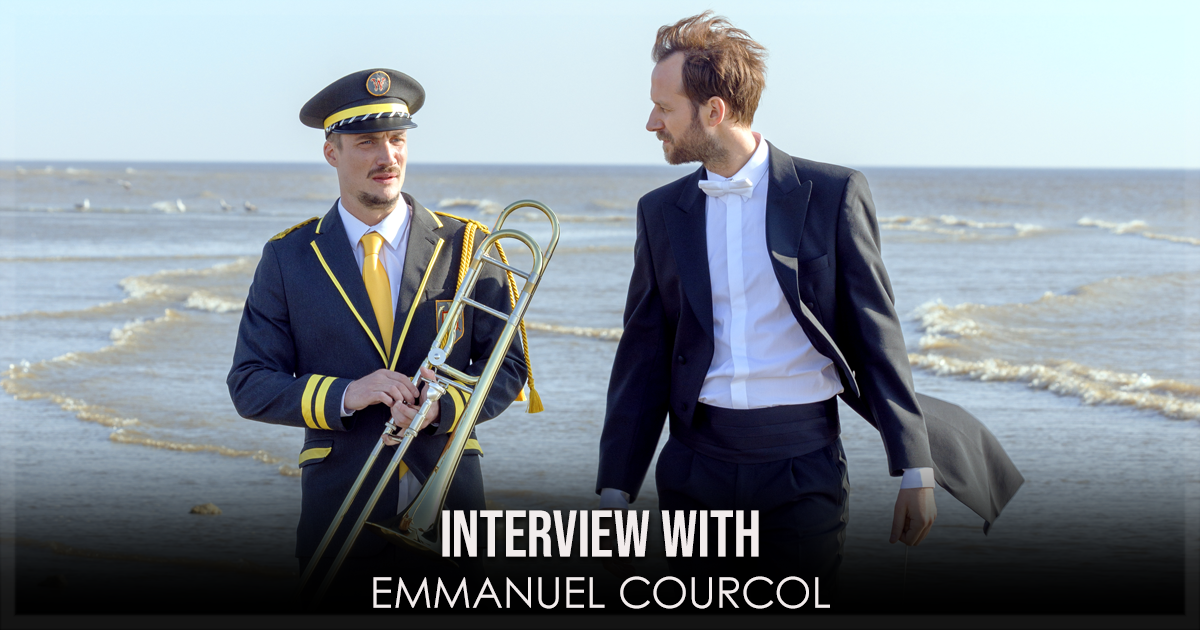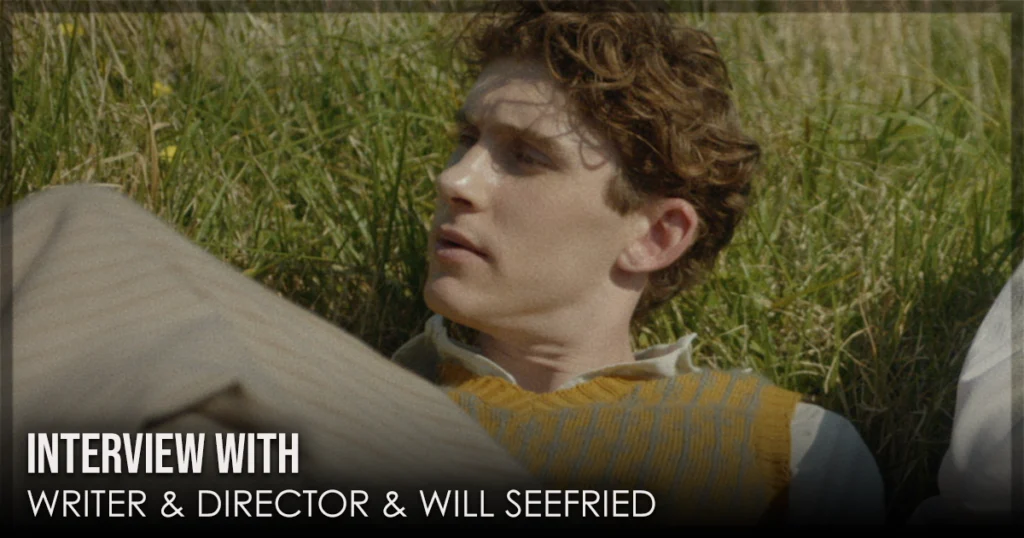In French director Emmanuel Courcol’s comedy drama, The Marching Band (En fanfare), the celebrated orchestra conductor, Thibaut Desormeaux (Benjamin Lavernhe) is diagnosed with leukemia. To his surprise, the tests to identify a bone marrow donor reveal that he was adopted. The search for his brother leads him to Jimmy (Pierre Lottin), who works in a school cafeteria and plays trombone in a local marching band. Recognizing Jimmy’s talent, Thibaut offers to fill in as the band’s conductor, while he and Jimmy reconnect through their love of music.
Courcol’s previous films include his 1920s set feature debut Ceasefire (Cessez-le-feu), which starred Romain Duris as a man attempting to make amends for abandoning his family. He followed this with The Big Hit (Un triomphe), a story about an actor’s attempt to stage a prison production of Samuel Beckett’s play, Waiting for Godot.
Amongst Courcol’s acting and screenwriting credits are the collaborations with director Philippe Lioret on Mademoiselle, The Light (L’équipier,), Welcome and All Our Desires (Toutes nos envies)
Speaking with Movies We Texted About, Courcol discussed his hopeful story, the power of the edit, and cinema as a therapeutic experience.
The Interview with Emmanuel Courcol on The Marching Band
[Editor’s Note: This interview has been lightly edited for clarity.]
Paul Risker: Why filmmaking as a means of creative expression? Was there an inspirational or defining moment for you personally?
Emmanuel Courcol: First I was an actor, then a screenwriter. I think the thing that made me want to become a director was the frustration at not being able to carry a project through to the end. But also, coupled with this, I had the desire to direct because, being an actor, I worked a lot with the troupe. So, I wanted to get back onto set and find that feeling of companionship that you experience.
The best path to becoming a director is to be an actor and then a screenwriter, which is what I’ve done. To have the experience of being an actor gives you a sensitivity, and when coupled with screenwriting, you have this sense of structure. Then, going on to be a director, you’re able to draw on these two things which allow you to really communicate with your actors, which is so fundamental. I feel a fraternal relationship with my actors, and I hope to inspire confidence in them. I hope to let them have this liberty of expression that I think is fundamental to their craft.
Paul Risker: Unlike in the theater where the actors have control, in cinema, they place their performance in the hands of the director and editor. Does this place a responsibility on your shoulders that you carry with you through post-production?
Emmanuel Courcol: It’s true that the edit gives you a lot of power as a director. Now that I’m more experienced, I actually think a lot about the edit while I’m shooting. So, it’s something that goes through my mind when we’re on set, and I think it can be reassuring for the actors to know that we’ve got all of this material, and we can choose what the best scenes are going to be. Sometimes, they might have a scene that they think they didn’t do as well as they could have, and it’s important that I reassure them by knowing what I have and what I’m gonna cut, because I’m the one with the scissors.
Paul Risker: What was the genesis of the idea for The Marching Band?
Emmanuel Courcol: The origins of this project came about when I was consulting on another script, which was set in the north of France in a similar social milieu. But it wasn’t focused on bands, it was focused on cheerleaders. We actually went to the north of France, and while there, I developed a sensitivity towards the culture and the music, and I knew then this was something I wanted to explore.
Paul Risker: How do you view The Marching Band in relation to your other films? Do you identify any thematic patterns, such as the necessity for human connection, which is woven into your films?
Emmanuel Courcol: It wasn’t an editorial decision that I made ahead of making any of my films. It’s more a case of something that I’ve realized retrospectively — that my cinema is a cinema of reparation, of repair and how we surmount a trauma once we’ve experienced it. And it’s something that’s important in my personal history too. But, yes, I’m focused on this type of cinema, about repairing and overcoming things we’ve experienced.
Paul Risker: I’ve often considered that films start off being about the characters and end up being about the audience. If so, and cinema helps us to understand ourselves and the world around us, is it a form of therapy?
Emmanuel Courcol: I hope it’s a form of therapy and making films is therapeutic for me, but that doesn’t matter because it’s just about me. It can be a form of therapy for the public by either being just an instance of levity in their day or it can be something more profound.
What I have found with this film is that people would come up to me afterward and say that they recognize themselves in the film, as musicians, brothers, people who are ill or adopted children. The film’s themes seem to touch people, which leaves people feeling like they’re not alone. And for people to be able to recognize themselves is really important.
Paul Risker: Referring to that impression of people feeling that they are not alone, it positions your film in an interesting context given the political, economic and cultural divides in our contemporary world.
Emmanuel Courcol: […] In France, it’s true that it has touched a lot of people, from cinephiles to the public. And what touches people is to see humanity.
The film conveys the idea that not all is lost and that there’s still beauty and humanity in the world. For people to come out of the film and feel good is all that I can hope for.
Paul Risker: How do you look back on the experience of making this film, and would you describe filmmaking as a transformative experience?
Emmanuel Courcol: I’m still a relatively young director and this is only my fourth film, but I have learned something on each of my films. What I’ve learned the most about is human relationships — to be more patient and understanding.
Each film is another universe to discover, and so, in this film I’ve discovered the world of music and the marching band. In another film, I’m discovering a new country, such as Greenland. All of these things nourish me.


